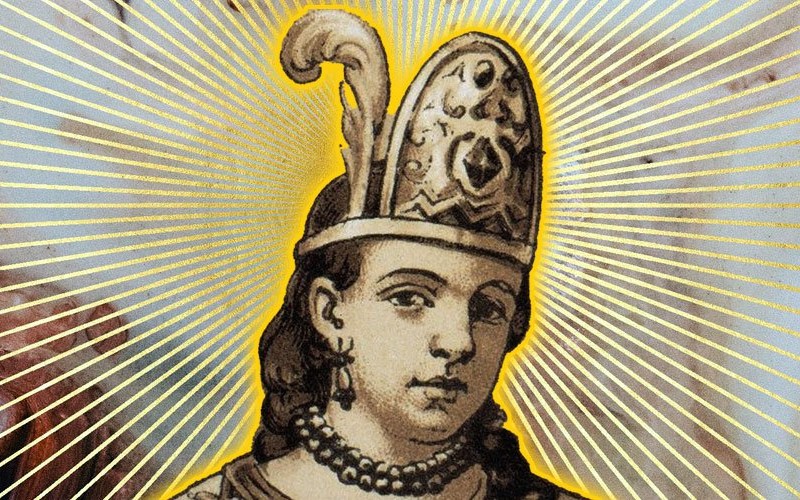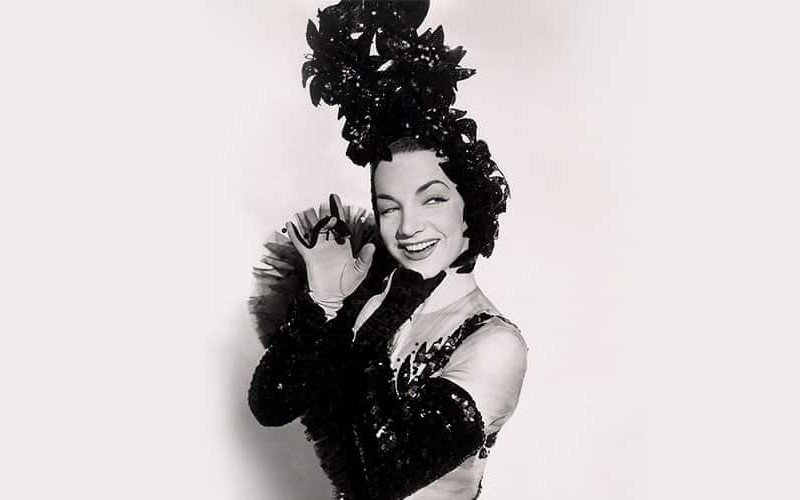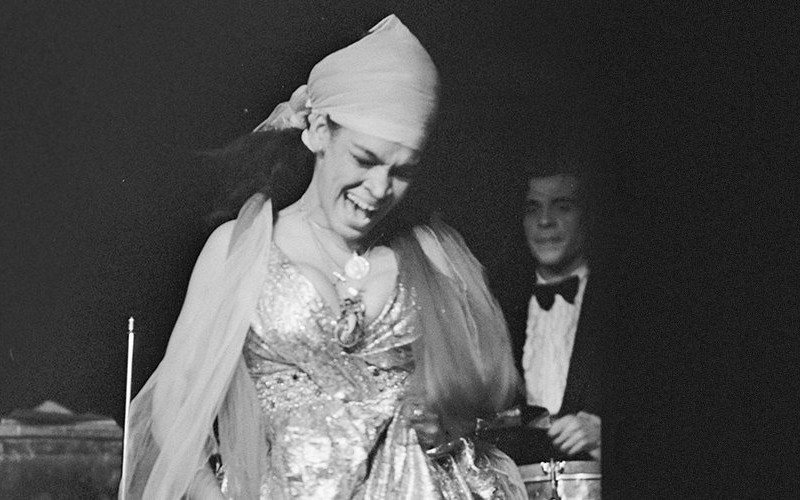La Malinche’s Misunderstood Role in an Impossible Situation
La Malinche is a figure wrapped in controversial layers, but her story deserves a deeper analysis. What does her story sound like, not as a tale of betrayal but as a tale of agency, intelligence, and survival?

La Malinche is one of the most well-known historical figures and representatives of indigenous women in Mexico. Also known as Maltintzin, Malinalli, or Doña Marina (as the Spanish called her), she was known as Hernán Cortés’s translator during the Spanish conquest. As a result, La Malinche has been perceived as a traitor to her own people, something that has been memorialized in Mexican slang. Being called a “malinchista” is the same as being called disloyal or a traitor to one’s country and culture.
However, it’s important to remember that we know very little of her life or her experiences as Cortés’s translator from her perspective. Instead, her story has been consistently appropriated, retold, and altered in post-colonial Mexico by intellectuals and their political agendas.
If a truly thoughtful analysis is the end goal, different lenses should be considered when looking at historical figures. La Malinche is no exception to that. Rather than revisiting the narrative of betrayal, what would it look like to consider her life through the lens of resistance, resilience, intelligence, and survival?
La Malinche 101: Who Was She?
Malinche started as a domestic slave to Cortés, but since she dominated the Mayana, Nahuatl, and Spanish languages, she quickly became indispensable to the Spanish conquistador as an interpreter. Her role focused on facilitating communication, but she wasn’t just a translator, she was compelling and gifted at creating political connections.
This is how she became caught between two empires.
Many accounts speak of how she became Cortés’ lover as well, but there’s nothing that indicates there was actual love between them or that Malinche was a willing participant. Whether or not she was helpful to Cortés, she was still a slave. But what’s known for sure is that they had a physical relationship, which resulted in a son and one of the first mestizos, Martín Cortés.
Where the “Traitor” Label Comes From
The most interesting thing about Malinche is that she was adaptable and resilient. Those characteristics drove her decisions, which then made her the perfect figure to bear the brunt of the responsibility. What cemented her perception as a traitor is that she saved the Spaniards from an ambush by the Cholulans. She did this by sharing information given to her by the wife of a native leader. Malinche was offered safety if she went with them, but she decided to deliver the information to Cortés.
That led the Spanish conquistador to massacre the people of Cholula and march directly to the capital of the Aztec Empire. But was she really a traitor, or was she just doing what she was taught to do? Even if Malinche is recognized as an intelligent and resourceful woman, it’s important to keep in mind she was bred to obey.
Before she was gifted to Cortés, she had been a slave for years and from an early age. Betrayed by her own people and family, it’s easy to see how it became her nature to serve her master, whoever that may be. Does that mean that, in sharing that information, she wished for the Cholula massacre or the subsequent fall of the Aztec empire? The truth is, we can’t know her intentions for sure. The issue with that is no room has been left for interpretation because scholars, through the centuries, have negatively defined her intentions.
Was La Malinche Really a Traitor or Just a Woman Trying to Survive?
There’s no denying that La Malinche’s influence on Cortés was profound and she played a role in his success, gaining status herself. She helped Cortés form alliances and uncover plots, and she was also his consort. It’s also undeniable that there are no records regarding how she felt about the role she was forced to play.
She was easily written off as a traitor, but it’s not a matter of black and white. There are too many factors to consider about the complexity of her life. While some of her actions can be interpreted as treacherous, it’s important to remember that her negotiations saved her people from violence before the Cholula massacre, and the Aztecs respected her for that.
Despite her vilification, La Malinche’s legacy is a clear example of resilience, resistance, intelligence, and the transcending of simplistic narratives that have surrounded her story. She has immense significance in Latino history and more nuanced conversations about who she was have sprouted through the years.
La Malinche: A Misunderstood Icon
The life of La Malinche took place between two opposite sides of a global conflict. She was a trafficked girl and enslaved young woman who used the skills she had to survive. To discuss her story in black and white is a disservice to her and how women are defined in history – if they’re included at all.
Through a decolonized and feminist lens, it’s possible that she wasn’t just a temptress or a selfish traitor, but rather a complex woman who existed at a very complex time and who, like any other human, could have had both selfish and selfless virtues. What’s universally accepted, however, is that she was forced into a complicated role, and that complexity is what has enabled her to rise as an icon in history.




